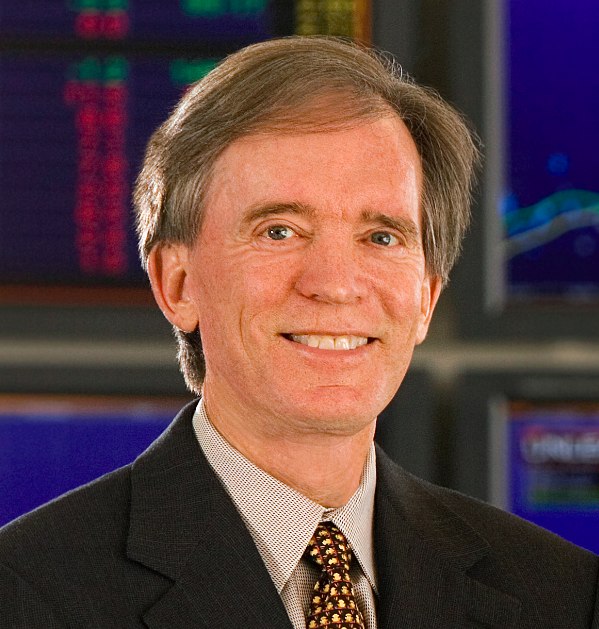Joseph Schumpeter, the originator of the phrase “creative destruction,” authored a less well-known corollary at some point in the 1930s. “Profit,” he wrote, “is temporary by nature: It will vanish in the subsequent process of competition and adaptation.” This quote opens William H. Gross’ monthly investment comment referring to the micro level of capitalism: a given firm, such as Kodak, may see its business cycle go wrong and its profit may be temporary, and “vanish”, as Shumpeter notes. Nevertheless, if “capitalism as we know it is to survive”, this is something that must not happen to profits as a whole, in their contribution to GDP. The founder, MD and co-CIO of PIMCO remarks that “capitalism without profits is like a beating heart without blood”.
Bill Gross also talks about another sacred pillar of capitalism: return or “carry”, defined as a credit or an equity risk “premium” involving some potential amount of gain or loss to an investor’s principal. This “carry” is present in corporate and high yield bonds, stocks, private equity and emerging market investments, or by extending duration and holding longer maturities on a bonds portfolio. Gross names this “carry” the “beating heart of our financial markets and ultimately of our real economy”.
And once the similes have been set, Gross exposes the dilemma: “there comes a point when no matter how much blood is being pumped through the system as it is now, with zero-based policy rates and global quantitative easing programs, that the blood itself may become anemic, oxygen-starved, or even leukemic, with white blood cells destroying more productive red cell counterparts.” As a consequence “Never have investors reached so high in price for so low a return. Never have investors stooped so low for so much risk,” notes Gross.
The Central Banks theory that “higher and higher asset prices produced necessarily by more and more QE check writing will inevitably stimulate real economic growth via the spillover wealth effect into consumption and real investment” should be challenged “if only because it doesn’t seem to be working very well.”
Bill Gross’ thesis summed by himself up would be this: “Low yields, low carry, future low expected returns have increasingly negative effects on the real economy.”
Andmoreover, he addresses to the Chairman of the Federal Reserve on these terms:“Well it’s been five years Mr. Chairman and the real economy has not once over a 12-month period of time grown faster than 2.5%. Perhaps, in addition to a fiscally confused Washington, it’s your policies that may be now part of the problem rather than the solution. Perhaps the beating heart is pumping anemic, even destructively leukemic blood through the system. Perhaps zero-bound interest rates and quantitative easing programs are becoming as much of the problem as the solution. Perhaps when yields, carry and expected returns on financial and real assets become so low, then risk-taking investors turn inward and more conservative as opposed to outward and more risk seeking. Perhaps financial markets and real economic growth are more at risk than your calm demeanor would convey.”
The conclusion: “Wounded heart you cannot save … you from yourself. More and more debt cannot cure a debt crisis unless it generates real growth. Your beating heart is now arrhythmic and pumping deoxygenated blood. Investors should look for a pacemaker to follow a less risky, lower returning, but more life sustaining path.”
The Wounded Heart Speed Read
- Financial markets require “carry” to pump oxygen to the real economy.
- Carry is compressed – yields, spreads and volatility are near or at historical lows.
- The Fed’s QE plan assumes higher asset prices will revigorate growth.
- It doesn’t seem to be working.
- Reduce risk/carry related assets.
Mr. Gross is a founder, managing director and co-CIO of PIMCO based in the Newport Beach office. He has been with PIMCO since he co-founded the firm in 1971 and oversees the management of more than $1.9 trillion of securities. He is the author of numerous articles on the bond market, as well as the book, “Everything You’ve Heard About Investing is Wrong,” published in 1997. Among the awards he has received, Morningstar named Mr. Gross and his investment team Fixed Income Manager of the Decade for 2000-2009 and Fixed Income Manager of the Year for 1998, 2000, and 2007 (the first three-time recipient). He received the Bond Market Association’s Distinguished Service Award in 2000 and became the first portfolio manager inducted into the Fixed Income Analysts Society’s hall of fame in 1996. Mr. Gross is a nine-time Barron’s Roundtable panelist (2005-2013), appearing in the annual issue featuring the industry’s top investment experts, and he received the Money Management Lifetime Achievement Award from Institutional Investor magazine in 2011. In a survey conducted by Pensions and Investments magazine in 1993, he was recognized by his peers as the most influential authority on the bond market in the U.S. He has 43 years of investment experience and holds an MBA from the Anderson School of Management at the University of California, Los Angeles. He received his undergraduate degree from Duke University.

